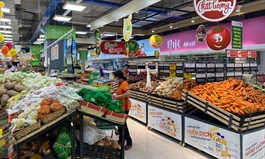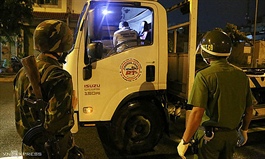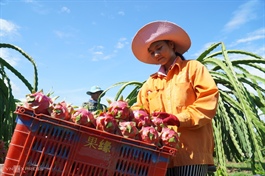Da Nang plans to reopen markets, grocery stores under social-distancing conditions
Da Nang plans to reopen markets, grocery stores under social-distancing conditions

Considering the results of recent COVID-19 testing, authorities will lift a ban on some traditional markets as long as the neighborhoods where the markets are situated are marked as yellow zones, or areas with low risks of infection, and the sellers are from such zones as well.
The number of stalls permitted to reopen at each market must not exceed 30 percent of its total stores in order to ensure social distancing.
Only vendors who have been inoculated with at least one dose of COVID-19 vaccine and have tested negative twice for the coronavirus can work at the markets.
These vendors will be retested every three days.
Approved markets will be open from 7:00 am to 11:00 am each day and customers are limited to 50 per hour and a total of 200 per day, Minh said.
Customers must be representatives of management boards of residential areas who are responsible for helping households do the shopping.
Only 30 percent of grocery stores in green zones, or infection-free areas, are allowed to resume provided their staff have received at least one jab of the vaccine.
These grocery stores must also be located in open, spacious areas.
“We absolutely won’t allow grocery stores in alleys to reopen because the risk of infection is high,” said Nguyen Van Quang, secretary of the Da Nang Party Committee.
The Da Nang Department of Industry and Trade previously reported that people’s food reserves had depleted, resulting in an increasing demand for shopping over the past few days that cannot be fulfilled by the few supermarkets and convenience stores which remain open.
To meet this demand, the department proposed the municipal People’s Committee allow supermarkets, convenience stores, and distribution businesses to resume their full capacity.
At the same time, the department suggested the reopening of traditional markets and grocery stores, the establishment of mobile food selling stalls and temporary markets, and the mobilization of more personnel into helping citizens go shopping for food.
Grocery stores as well as wholesale and traditional markets in the city have been closed since late July after cases of COVID-10 were detected on site.
Da Nang has accumulated 3,561 infections since the current wave hit Vietnam on April 27.

























